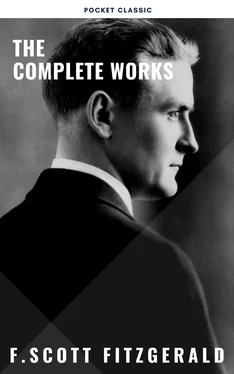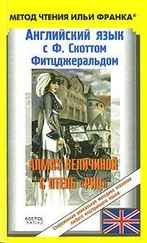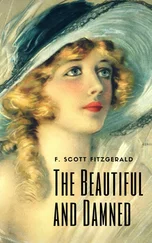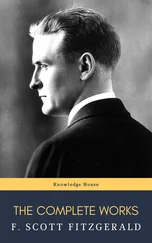F. Scott Fitzgerald - The Complete Works of F. Scott Fitzgerald
Здесь есть возможность читать онлайн «F. Scott Fitzgerald - The Complete Works of F. Scott Fitzgerald» — ознакомительный отрывок электронной книги совершенно бесплатно, а после прочтения отрывка купить полную версию. В некоторых случаях можно слушать аудио, скачать через торрент в формате fb2 и присутствует краткое содержание. Жанр: unrecognised, на английском языке. Описание произведения, (предисловие) а так же отзывы посетителей доступны на портале библиотеки ЛибКат.
- Название:The Complete Works of F. Scott Fitzgerald
- Автор:
- Жанр:
- Год:неизвестен
- ISBN:нет данных
- Рейтинг книги:4 / 5. Голосов: 1
-
Избранное:Добавить в избранное
- Отзывы:
-
Ваша оценка:
- 80
- 1
- 2
- 3
- 4
- 5
The Complete Works of F. Scott Fitzgerald: краткое содержание, описание и аннотация
Предлагаем к чтению аннотацию, описание, краткое содержание или предисловие (зависит от того, что написал сам автор книги «The Complete Works of F. Scott Fitzgerald»). Если вы не нашли необходимую информацию о книге — напишите в комментариях, мы постараемся отыскать её.
The first table of contents (at the very beginning of the ebook) lists the titles of all novels included in this volume. By clicking on one of those titles you will be redirected to the beginning of that work, where you'll find a new TOC that lists all the chapters and sub-chapters of that specific work.
The Complete Works of F. Scott Fitzgerald — читать онлайн ознакомительный отрывок
Ниже представлен текст книги, разбитый по страницам. Система сохранения места последней прочитанной страницы, позволяет с удобством читать онлайн бесплатно книгу «The Complete Works of F. Scott Fitzgerald», без необходимости каждый раз заново искать на чём Вы остановились. Поставьте закладку, и сможете в любой момент перейти на страницу, на которой закончили чтение.
Интервал:
Закладка:
THE COMPLETE WORKS OF
F. Scott Fitzgerald
F. SCOTT FITZGERALD
Stories 1909–17. F. SCOTT FITZGERALD
This Side of Paradise. F. SCOTT FITZGERALD
Flappers and Philosophers. F. SCOTT FITZGERALD
Stories 1920–25. F. SCOTT FITZGERALD
The Beautiful and Damned. F. SCOTT FITZGERALD
Tales of the Jazz Age.
The Vegetable.
The Great Gatsby.
All the Sad Young Men.
Stories 1926–34.
Tender is the Night.
Taps at Reveille.
Stories 1935–40.
The Love of the Last Tycoon.
Stories 1941–.
The Pat Hobby Stories.
Miscellaneous Writings.
Index of Stories.
F. SCOTT FITZGERALD
Stories 1909–17.
[ The texts follow the Cambridge Edition , James L. W. West III, ed., Cambridge University Press 2010. ]
STORIES 1909–17
— ◇ —
The Mystery of the Raymond Mortgage.
Reade, Substitute Right Half.
A Debt of Honor.
The Room with the Green Blinds.
A Luckless Santa Claus.
Pain and the Scientist.
The Trail of the Duke.
“Shadow Laurels.”
The Ordeal.
The Debutante.
The Spire and the Gargoyle.
Babes in the Woods.
Sentiment—and the Use of Rouge.
The Pierian Springs and the Last Straw.
The Mystery of the Raymond Mortgage.
St. Paul Academy Now and Then (October 1909)
When I first saw John Syrel of the “New York Daily News,” he was standing before an open window of my house gazing out on the city. It was about six o’clock and the lights were just going on. All down 33rd Street was a long line of gaily illuminated buildings. He was not a tall man, but thanks to the erectness of his posture, and the suppleness of his movement, it would take no athlete to tell that he was of fine build. He was twenty-three years old when I first saw him, and was already a reporter on the “News.” He was not a handsome man; his face was clean-shaven, and his chin showed him to be of strong character. His eyes and hair were brown.
As I entered the room he turned around slowly and addressed me in a slow, drawling tone: “I think I have the honor of speaking to Mr. Egan, chief of police.” I assented, and he went on: “My name is John Syrel and my business,—to tell you frankly, is to learn all I can about that case of the Raymond mortgage.”
I started to speak but he silenced me with a wave of his hand. “Though I belong to the staff of the ‘Daily News,’” he continued, “I am not here as an agent of the paper.”
“I am not here,” I interrupted coldly, “to tell every newspaper reporter or adventurer about private affairs. James, show this man out.”
Syrel turned without a word and I heard his steps echo up the driveway.
However, this was not destined to be the last time I ever saw Syrel, as events will show.
The morning after I first saw John Syrel, I proceeded to the scene of the crime to which he had alluded. On the train I picked up a newspaper and read the following account of the crime and theft, which had followed it:
“EXTRA”
“Great Crime Committed in Suburbs of City”
“Mayor Proceeding to Scene of Crime”
On the morning of July 1st, a crime and serious theft were committed on the outskirts of the city. Miss Raymond was killed and the body of a servant was found outside the house. Mr. Raymond of Santuka Lake was awakened on Tuesday morning by a scream and two revolver shots which proceeded from his wife’s room. He tried to open the door but it would not open. He was almost certain the door was locked from the inside, when suddenly it swung open disclosing a room in frightful disorder. On the center of the floor was a revolver and on his wife’s bed was a bloodstain in the shape of a hand. His wife was missing, but on a closer search he found his daughter under the bed, stone dead. The window was broken in two places. Miss Raymond had a bullet wound on her body, and her head was fearfully cut. The body of a servant was found outside with a bullet hole through his head. Mrs. Raymond has not been found.
The room was upset. The bureau drawers were out as if the murderer had been looking for something. Chief of Police Egan is on the scene of the crime, etc., etc.
Just then the conductor called out “Santuka!” The train came to a stop, and getting out of the car I walked up to the house. On the porch I met Gregson, who was supposed to be the ablest detective in the force. He gave me a plan of the house, which he said he would like to have me look at before we went in.
“The body of the servant,” he said, “is that of John Standish. He has been with the family twelve years and was a perfectly honest man. He was only thirty-two years old.”
“The bullet which killed him was not found?” I asked.
“No,” he answered; and then, “Well, you had better come in and see for yourself. By the way, there was a fellow hanging around here, who was trying to see the body. When I refused to let him in, he went around to where the servant was shot and I saw him go down on his knees on the grass and begin to search. A few minutes later he stood up and leaned against a tree. Then he came up to the house and asked to see the body again. I said he could if he would go away afterwards. He assented, and when he got inside the room he went down on his knees under the bed and hunted around. Then he went over to the window and examined the broken pane carefully. After that he declared himself satisfied and went down toward the hotel.”
After I had examined the room to my satisfaction, I found that I might as well try to see through a millstone as to try to fathom this mystery. As I finished my investigation I met Gregson in the laboratory.
“I suppose you heard about the mortgage,” said he, as we went downstairs. I answered in the negative, and he told me that a valuable mortgage had disappeared from the room in which Miss Raymond was killed. The night before, Mr. Raymond had placed the mortgage in a drawer and it had disappeared.
On my way to town that night I met Syrel again, and he bowed cordially to me. I began to feel ashamed of myself for sending him out of my house. As I went into the car the only vacant seat was next to him. I sat down and apologized for my rudeness of the day before. He took it lightly and, there being nothing to say, we sat in silence. At last I ventured a remark.
“What do you think of the case?”
“I don’t think anything of it as yet. I haven’t had time yet.”
Nothing daunted I began again. “Did you learn anything?”
Syrel dug his hand into his pocket and produced a bullet. I examined it.
“Where did you find it?” I asked.
“In the yard,” he answered briefly.
At this I again relapsed into my seat. When we reached the city, night was coming on. My first day’s investigation was not very successful.
My next day’s investigation was no more successful than the first. My friend Syrel was not at home. The maid came into Mr. Raymond’s room while I was there and gave notice that she was going to leave. “Mr. Raymond,” she said, “there was queer noises outside my window last night. I’d like to stay, sir, but it grates on my nerves.” Beyond this nothing happened, and I came home worn out. On the morning of the next day I was awakened by the maid who had a telegram in her hand. I opened it and found it was from Gregson. “Come at once,” it said, “startling development.” I dressed hurriedly and took the first car to Santuka. When I reached the Santuka station, Gregson was waiting for me in a runabout. As soon as I got into the carriage Gregson told me what had happened.
Читать дальшеИнтервал:
Закладка:
Похожие книги на «The Complete Works of F. Scott Fitzgerald»
Представляем Вашему вниманию похожие книги на «The Complete Works of F. Scott Fitzgerald» списком для выбора. Мы отобрали схожую по названию и смыслу литературу в надежде предоставить читателям больше вариантов отыскать новые, интересные, ещё непрочитанные произведения.
Обсуждение, отзывы о книге «The Complete Works of F. Scott Fitzgerald» и просто собственные мнения читателей. Оставьте ваши комментарии, напишите, что Вы думаете о произведении, его смысле или главных героях. Укажите что конкретно понравилось, а что нет, и почему Вы так считаете.












